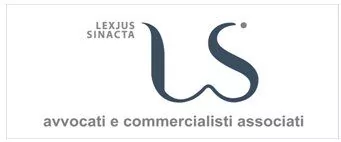According to the EU Commission, tourism is the most resilient sector of the EU economy. The current EU Package Travel Directive dates back to 1990 and covers only traditional package holidays, although in the last two and a half decades the travel market was transformed by fast-growing technology and internet. For this reason, the current regulations are considered outdated and the EU realises that legislative update is needed.
In July 2013, the European Commission (EC) brought forward a proposal regarding the review of the Council Directive 90/314/EEC (Package Travel Directive), which was accepted by the European Parliament in 2014. Recently, on the 28th of May 2015, the EU Council approved the proposal of new Package Travel Directive. Following its publication in the EU Official Journal, due for the end of 2015, Member States will have two years to implement the new rules and traders a further period of 6 months to adapt to the new rules.
The directive will not apply to business trips, neither to travel services which are covering 24 hours without accommodation or stand-alone products (eg: a flight).
The concept of package
The current regulation protects consumers who have booked a pre-arranged "package holiday", usually consisting of a combination of accommodation and transport or car rental. The new regulation broadens the concept of "package" and includes protection for the following combinations of travel arrangements:
- Pre-arranged packages: ready-made holidays by a tour operator;
- Customized packages: a selection of components by the traveller and purchased from a single business online or offline;
- Linked travel arrangements: consists of two or more elements bought from different traders through linked online processes where the traveller's name or particulars need to conclude a booking transaction transferred between the traders at the latest when the booking of the first service is confirmed. In order to qualify as linked, the bookings must be made within 24 hours.
Due to this change, an additional 120 million consumer booking customised packages online will be protected by the directive.
The effects on businesses and consumers
The New Package Travel Directive will offer wider protection to consumers booking combined travel holidays, particularly online. Furthermore, under the new regulation, consumers will benefit from stronger cancellation rights and fairer and more predictable prices, alongside better assistance provided from the organiser in case of difficulty (Article 14), regarding health services, local authorities and consular assistance, and help to arrange alternative travel plans.
Previous rules were not clear about the liability, allowing Member States to choose between the retailer and the organiser. Under the new regulations, the liable party is the organiser of the package, with the possibility for the Member States to make the retailer liable as well as the organiser.
Not only consumers, but businesses will benefit from the new directive too. According to the new Travel Package Directive, insolvency schemes would be recognised across the EU, therefore companies could expand their activities to other countries.
Another benefit for businesses is the modernisation and harmonisation of information requirements. This pre-contractual information will make it obligatory to inform travellers of their rights on passport and visa requirements, package travel contracts, price changes, termination rights, and travellers' rights when something goes wrong. This new provision will have a positive effect on traders, saving them nearly 400 million euro per year, according to the EU.
Conclusions
The old rules needed to be brought into the digital age, a change is essential, and it is certain, that the New Travel Package Directive will meet the needs of the consumers and the businesses. With the new rules, consumers enjoy more protection, greater rights and according to the EU, will reduce damage to consumers by about 430 million euro a year. One of the most important benefits of the new directive will be the boost to the economy due to clearer and harmonised regulation which will allow businesses to expand.
The content of this article is intended to provide a general guide to the subject matter. Specialist advice should be sought about your specific circumstances.


